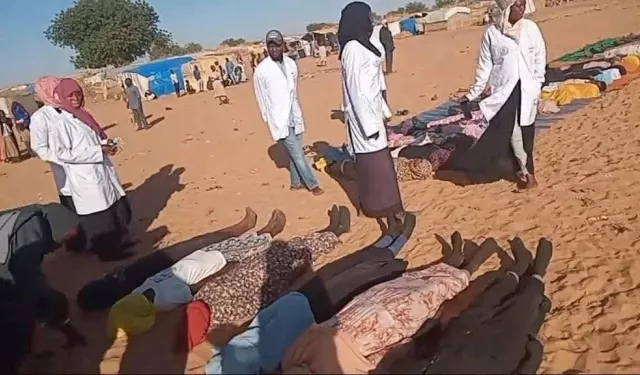The Sudan Doctors Network warned on Tuesday that the deteriorating health situation in El-Fasher, capital of North Darfur, “portends a humanitarian disaster,” as thousands of residents face life-threatening conditions due to a collapse in hospital services and ongoing siege conditions.
“Thousands of citizens are at risk of death due to the severe shortage of essential and life-saving medicines,” the network said in a statement. It cited a growing number of illnesses and injuries, and “the inability of medical personnel to adequately respond to patients’ needs.”
The group issued an urgent appeal for “the immediate provision of critical medicines—particularly those for chronic diseases, antibiotics, and emergency life-saving drugs,” warning that “the continuation of this situation threatens an imminent humanitarian disaster.”
The Sudan Doctors Network called on international and regional humanitarian organizations to intervene “swiftly and in coordination with local authorities,” urging them to supply medical equipment, open “safe humanitarian corridors for the unhindered delivery of aid,” and support medical staff operating “under extremely harsh conditions with almost no resources.”
The network placed blame on the Rapid Support Forces, stating that they “hold the Rapid Support Forces fully responsible for the shortage of medical supplies and the resulting deaths and human suffering caused by the siege they have imposed on the city.”
The network emphasized that “saving civilian lives is an urgent and non-negotiable priority,” and urged Sudan’s health authorities to “intervene immediately and coordinate with international organizations to secure the urgent delivery of medical supplies and food, in order to save the lives of defenseless civilians in El-Fasher.”
El-Fasher has been under siege since April 2023 amid ongoing fighting between the Sudanese Armed Forces, led by Gen. Abdel Fattah Al-Burhan, and the RSF, commanded by his former deputy, Mohamed Hamdan Dagalo. Once considered a safe haven for the displaced, the city is now cut off from aid and supplies, with tens of thousands fleeing the violence.
Prime Minister Mohamed Idris echoed the call for international action in a letter to the UN Security Council on Monday, warning that the survival of El-Fasher’s population hinges on opening humanitarian corridors.
“This is not just a humanitarian crisis; it is a moral test for the United Nations,” Idris wrote. “International law prohibits the use of starvation as a weapon of war.”
Eric Perdison, the World Food Programme’s regional director for East and Southern Africa, described conditions in El-Fasher as “a daily struggle to survive.”
“People’s coping mechanisms have been completely exhausted by over two years of war,” he said, adding that some residents were surviving on animal feed and scraps.
The WFP recently described El-Fasher as a city where “everyone… faces a daily struggle to survive,” and estimates that half of Sudan’s population, around 25 million people, are experiencing acute hunger, including 3.5 million women and children.
A Sudanese health ministry official told AFP that 63 people died of malnutrition in El-Fasher between Aug. 3 and 10, most of them women and children, noting that many deaths go unreported. “Those who die at home are buried immediately” he said.
